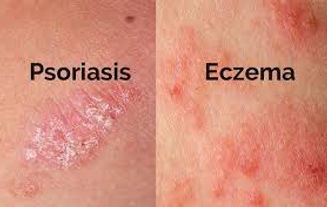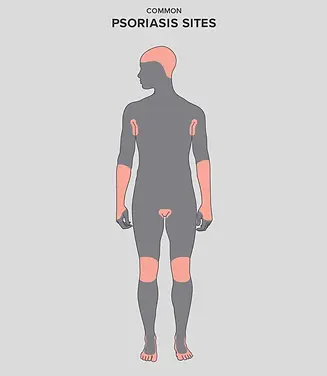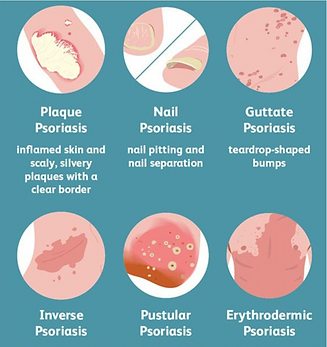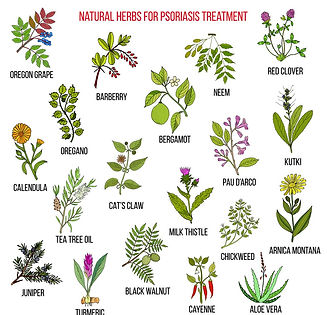












Understanding Psoriasis: A Holistic Approach to Relief and Healing
Introduction:
Welcome to our Psoriasis Resource Center, dedicated to providing comprehensive insights into the complexities of psoriasis and empowering individuals to take control of their skin health. In this article, we delve into the multifaceted nature of psoriasis triggers, shedding light on the environmental, genetic, and lifestyle factors that can exacerbate symptoms. By understanding these triggers, individuals can better manage their condition and explore effective treatment options, including Ayurveda therapies tailored to their unique needs.
Understanding Psoriasis:
A. Triggering Factors: Exploring the Environmental and Genetic Influences
B. Symptoms and Signs: Recognizing the Physical and Emotional Manifestations
C. Pathophysiology: Unraveling the Mechanisms Behind Psoriatic Disease
D. Prognosis: Insights into the Long-Term Outlook and Management Strategies
Understanding Psoriasis Triggers:
A. Environmental Factors:
1. Weather Conditions:
Cold, dry climates or excessive heat and humidity can trigger flare-ups.
2. Trauma or Injury:
Skin injuries, including cuts, scrapes, or sunburns, may trigger the onset or exacerbation of psoriasis lesions.
3. Infections:
Bacterial or viral infections, such as streptococcal throat infections, can trigger guttate psoriasis flare-ups.
4. Medications:
Certain medications, such as lithium, beta-blockers, and antimalarial drugs, may exacerbate psoriasis symptoms.
B. Genetic Predisposition:
1. Family History:
Individuals with a genetic history of psoriasis are at higher risk of developing the condition due to genetic predisposition.
2. HLA Genes:
Specific human leukocyte antigen (HLA) genes have been linked to an increased susceptibility to psoriasis.
C. Lifestyle Factors:
1. Stress:
Emotional stress and anxiety can trigger or worsen psoriasis flare-ups through hormonal and immune system responses.
2. Smoking:
Tobacco smoke contains toxins that can aggravate inflammation and contribute to the development of psoriasis.
3. Alcohol Consumption:
Excessive alcohol consumption has been associated with an increased risk of psoriasis and can exacerbate existing symptoms.
4. Diet: Dietary recommendations
Certain foods, such as gluten, dairy, and nightshade vegetables, may trigger inflammation and worsen psoriasis symptoms in some individuals.
Recognizing the Impact of Triggers on Psoriasis Symptoms:
A. Symptom Flare-Ups:
Understanding how specific triggers can lead to the aggravation of psoriasis symptoms, including redness, itching, and scaling.
B. Psoriasis Types and Triggers:
Exploring how different types of psoriasis, such as plaque psoriasis, guttate psoriasis, and inverse psoriasis, may be influenced by distinct triggers.
C. Personalized Triggers:
Recognizing that triggers can vary from person to person, necessitates a personalized approach to trigger management and treatment.
Types of Psoriasis that we encounter in day-to-day practice:
A. Plaque Psoriasis: The Most Common Form and Its Distinctive Characteristics
B. Guttate Psoriasis: Identifying the Small, Droplet-like Lesions
C. Pustular Psoriasis: Understanding the Pus-Filled Blisters and Their Triggers
D. Inverse Psoriasis: Managing Psoriasis in Skin Folds with Care
E. Nail Psoriasis: Addressing Nail Changes and Potential Complications
F. Palmoplantar Psoriasis: Coping with Psoriasis on the Hands and Feet
Managing Psoriasis Triggers with Ayurveda:
A. Holistic Approach:
Take advantage of the time-tested Ayurvedic principles to identify and address underlying imbalances that result in psoriasis flare-ups.
B. Herbal Remedies:
Resort to Ayurvedic herbs and formulations known for their anti-inflammatory, immune-modulating, and skin-healing properties. After extensive research for about 28 years on various types of psoriasis, we carefully prescribe herbs & treatments that are useful for different patients based on their conditions and Prakruti.
C. Lifestyle Modifications: Optimize your daily routines
Following traditional stress-reduction techniques, dietary adjustments, and lifestyle changes to minimize trigger exposure and promote overall well-being. Our expert physician will speak to you to understand and create a personalized diet and routine chart for you.
D. Success Stories:
Real-life testimonials and before/after images illustrating the effectiveness of Ayurveda in managing psoriasis triggers and symptoms.
E. Home remedies: Home Remedies
Discover natural relief for psoriasis with these simple home remedies. From soothing oatmeal baths to gentle moisturizers, explore effective and accessible ways to manage psoriasis symptoms at home. Dive into the world of essential oils, aloe vera, and dietary adjustments to complement your treatment plan. Empower yourself with knowledge and easy-to-implement strategies to nurture your skin and promote healing from the comfort of your own home
